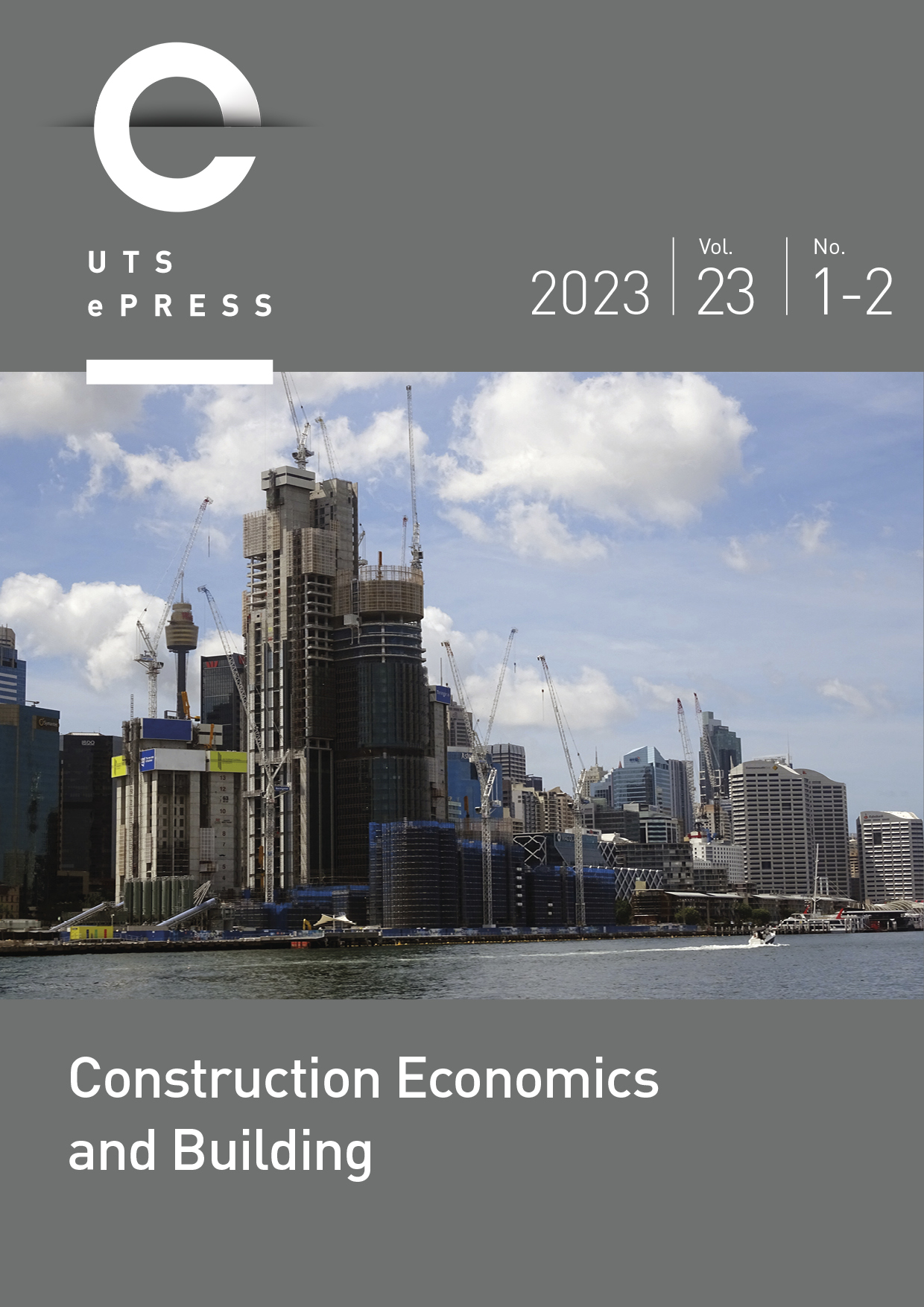The utility and value of contract terms: a case study on interior contractors
Main Article Content
Abstract
This study applied the conjoint analysis technique to appraise the utility of interior contractors' contract terms and project price conditions, the sample group comprising 112 interior contractors working in 12 shopping centers of a public company in Thailand. The results showed that the advance payment term, the period of an interim payment term, the period to make a payment term, and the project price conditions had average utility ratios (ratio of its utility to the total utility) of 28.53%, 20.24%, 20.41%, and 25.87%, respectively. These results confirmed that each of these three contract terms are as important to interior contractors as the project price condition (no price reduction by 5% of the proposed price). This study also valued the three contract terms by comparing their utility with the utility of the project price condition. The values of the terms to the interior contractor were as follows: the value of the advance payment term varied between 0.00–11.67% of the proposed price; the value of the period of the interim payment term varied between 1.25–8.33% of the proposed price; and the value of the period to make a payment term varied between 2.00–11.67% of the proposed price. The value of all three contract terms varied between 12.00–20.00% of the proposed price. The insights into the utility and value of these three contract terms from this study could aid project owners or tenants of shopping centers in project price negotiations.
Article Details
Section
Authors who publish with this journal agree to the following terms:
a) Authors retain copyright and grant the journal right of first publication with the work simultaneously licensed under a Creative Commons Attribution License that allows others to share and adapt the work with an acknowledgement of the work's authorship and initial publication in this journal.
b) Authors are able to enter into separate, additional contractual arrangements for the non-exclusive distribution of the journal's published version of the work (e.g., post it to an institutional repository or publish it in a book), with an acknowledgement of its initial publication in this journal.
c) Authors are permitted and encouraged to post their work online (e.g., in institutional repositories or on their website) prior to and during the submission process, as it can lead to productive exchanges, as well as earlier and greater citation of published work (See The Open Access Citation Advantage Service). Where authors include such a work in an institutional repository or on their website (ie. a copy of a work which has been published in a UTS ePRESS journal, or a pre-print or post-print version of that work), we request that they include a statement that acknowledges the UTS ePRESS publication including the name of the journal, the volume number and a web-link to the journal item.
d) Authors should be aware that the Creative Commons Attribution (CC-BY) License permits readers to share (copy and redistribute the work in any medium or format) and adapt (remix, transform, and build upon the work) for any purpose, even commercially, provided they also give appropriate credit to the work, provide a link to the license, and indicate if changes were made. They may do these things in any reasonable manner, but not in any way that suggests you or your publisher endorses their use.
